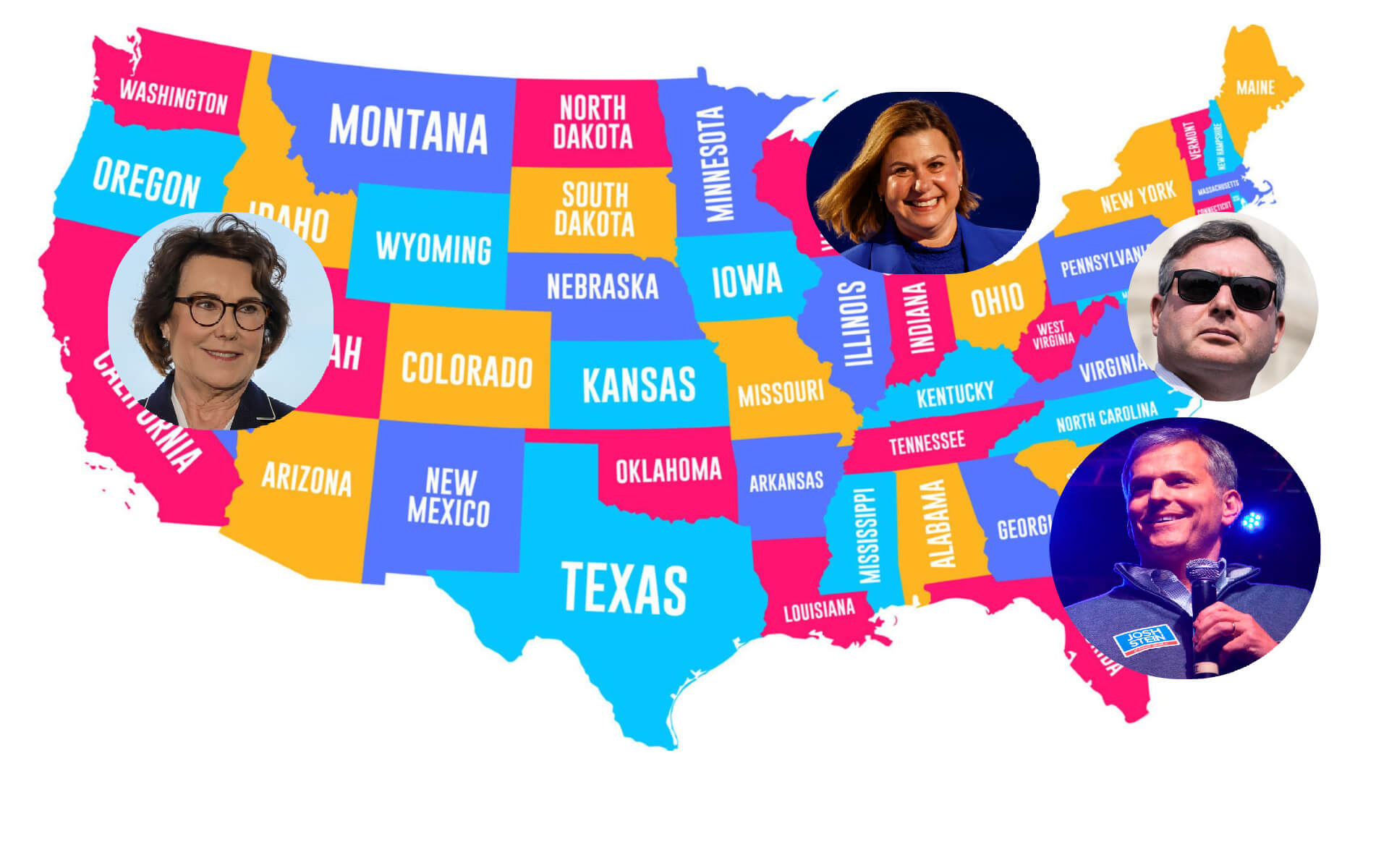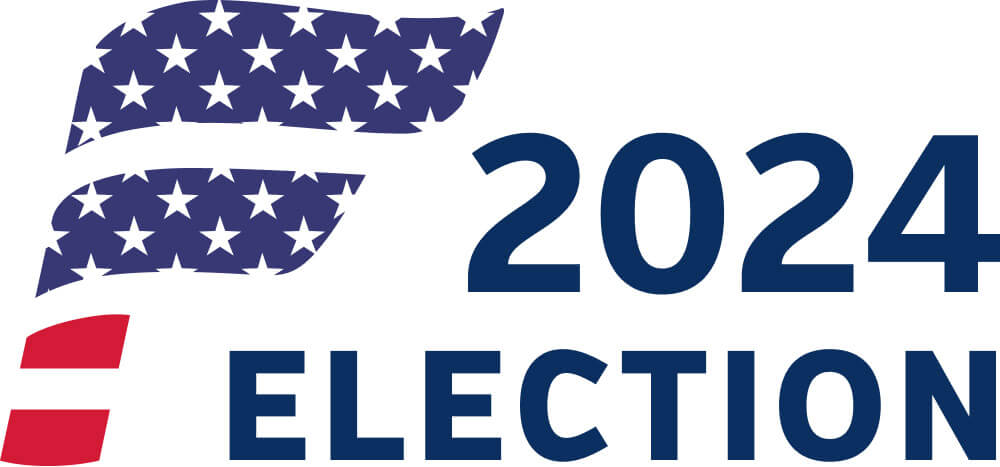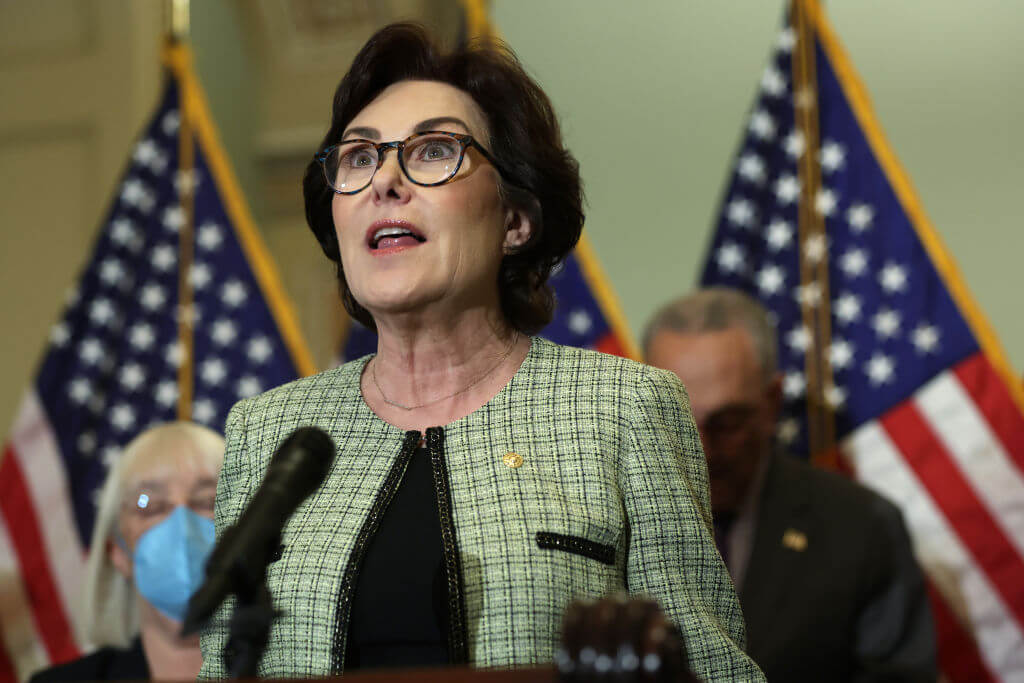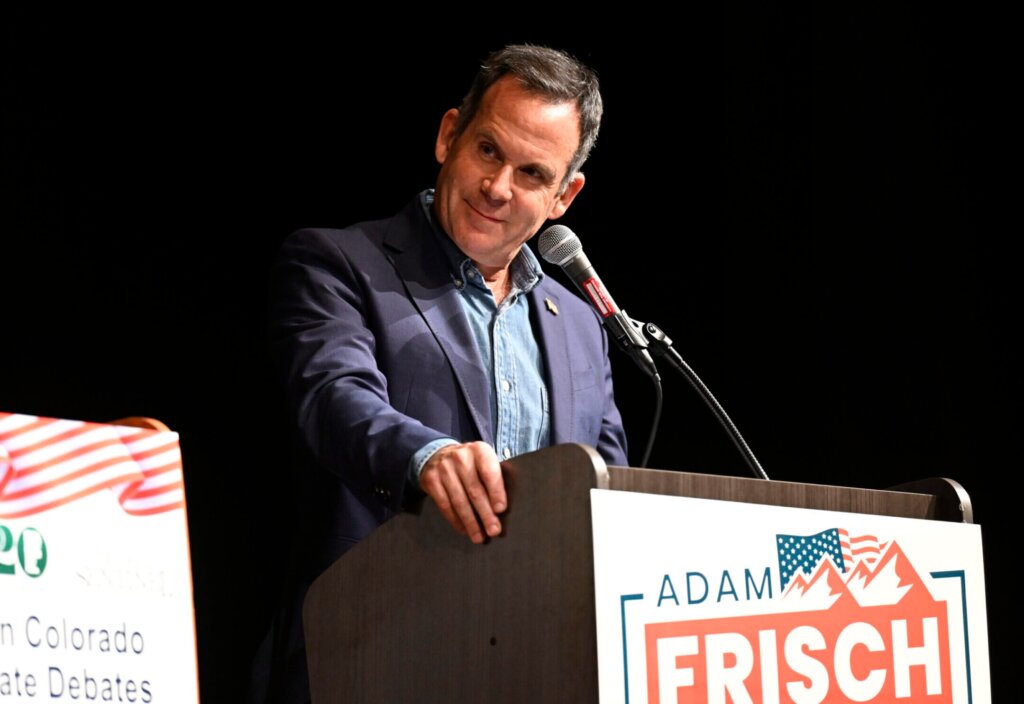The 4 races American Jews should watch
A former synagogue president, a politician with a history of antisemitic comments, and a Trump whistleblower are all on the ballot

Clockwise from top: Michigan Senate candidate Elissa Slotkin, House candidate Eugene Vindman, gubernatorial candidate Josh Stein and U.S. Sen. Jacky Rosen. Photo by Map: Resevoir dots via iStock. Candidates, Getty images.
Jews are running in some of the most pivotal, too-close-to-call races in the nation this election season.
 Here are four contests — two Senate, one House and one governor’s race — plus a bonus contest where the Jewish Democrat in the last election nearly ousted one of the most provocative Republicans in Congress.
Here are four contests — two Senate, one House and one governor’s race — plus a bonus contest where the Jewish Democrat in the last election nearly ousted one of the most provocative Republicans in Congress.
These races are all important in themselves, but nationally too, because both Republicans and Democrats see opportunities to win or retain majorities in Congress, and the presidential race is too close to call.
A nail-biter in Michigan: Elissa Slotkin
Rep. Elissa Slotkin, the Democrat running for an open Senate seat, is campaigning carefully on Gaza, mindful of 100,000 Michigan voters who cast “uncommitted” ballots in the Democratic primaries to protest President Joe Biden’s support of Israel.
She is the only Jewish member of the state’s congressional delegation, and faces Republican former Rep. Mike Rogers to replace Sen. Debbie Stabenow, who is retiring after a quarter century in office.
The Hill last week named it one of “5 Senate seats most likely to flip.” The non-partisan Cook Political Report rates it a “toss up.”
Slotkin, who became a bat mitzvah at Temple Beth El, a Reform synagogue outside Detroit, has celebrated the rescue of hostages and called out pro-Palestinian protests that target synagogues. She has also called for a “negotiated ceasefire” and said that Israel has a responsibility to “do better on civilian casualties.”

That may not be enough to convince the “uncommitted” voters in Michigan, home to more Arab and Muslim Americans than any other state. But there also may be more potentially helpful constituencies for her to pursue.
There are far more Black voters in Michigan than Arab Americans, said Ken Kollman, a political science professor at the University of Michigan. A healthy Black turnout for Vice President Kamala Harris, vying to become the first woman of color in the Oval Office, he said, could also boost Slotkin.
Kollman said he recently saw a Slotkin ad that surprised him, and showed how focused she is on moderate voters, including Republicans who don’t like former President Donald Trump. It referred to a bill signed into law by Trump.
“For a Democratic Senate candidate, to say the words ‘Donald Trump’ in her message — and not as a tear down — it’s pretty striking,” Kollman said.
Trump and Rogers have endorsed each other. But he’s not seen as a major MAGA fan, and it wasn’t long ago that Rogers dismissed the idea of a second Trump presidency.
A roller coaster in North Carolina: Josh Stein
Democrat Josh Stein wants to pull a Josh Shapiro and launch himself from state attorney general to the governor’s office.
The polls were with him, swung away, and have now swung back.

This race also feels unpredictable because of the ever-lengthening trail of incendiary comments by Stein’s opponent, Lt. Gov. Mark Robinson. He called abortion “killing a child because you weren’t responsible enough to keep your skirt down” in a 2018 Facebook post; (Robinson has acknowledged paying for the mother of his own unborn child to have an abortion in 1989.)
Robinson, who was elected lieutenant governor in 2020 with nearly 52% of the vote, has delighted some voters with an irreverent brand of Christian conservatism — and offended others with remarks about women, queer people, Black people and Jews.
He’s been accused of antisemitism for several remarks and posts, among them a 2017 Facebook posting: “I am so sick of seeing and hearing people STILL talk about Nazis and Hitler and how evil and manipulative they were,” he wrote. “NEWS FLASH PEOPLE, THE NAZIS (National Socialist) ARE GONE! We did away with them.”
Stein, a member of Temple Beth Or, a Reform congregation in Raleigh, would be the first Jew elected governor of North Carolina. Which is not highlighted in his campaign.
“Josh Stein doesn’t talk about his Jewish faith very often publicly,” said Chris Cooper, a political science professor at Western Carolina University. “Actually he hasn’t talked much about himself at all, choosing to focus instead on Robinson.”
On the ‘most vulnerable’ list: Nevada’s Jacky Rosen
Nevada’s Sen. Jacky Rosen, a Democrat who likes to call herself “the first former synagogue president to serve” in the upper house, is ahead in the polls, but not by much. But polls in Nevada — a purple state where Biden beat Trump by 2 percentage points in 2020 — are notoriously unreliable. David Damore, a political science professor at the University of Nevada, Las Vegas, said most are done on the cheap by out-of-staters who have a tough time getting representative samples from the highly transient population.
Damore thinks the Cook Political Report has the Senate race right, declaring it “leans Democrat.” Roll Call, the Capitol Hill news outlet, said it “tilts Democratic,” but also ranked Rosen fourth on its list of most vulnerable senators.

She’s running against Sam Brown, an Army veteran endorsed by Trump.
Rosen is getting some significant help from outside groups, including the Jewish Democratic Council of America, which this week launched a digital ad aimed at Nevada Jews, who represent 2.5% of the population.
The ad reminds Jewish voters that Brown is allied with Trump, and focuses on Rosen’s support for abortion rights, which a recent poll showed is the second-most important issue to Jewish voters, after the protection of democracy.
Jewish refugee in Virginia: Yevgeny ‘Eugene’ Vindman
Yevgeny Vindman, who goes by Eugene, and his identical twin brother, Alexander, arrived in New York in 1979 when they were 3 years old. Their father wanted to raise them in a free society far from the antisemitism of their native Ukraine, then part of the Soviet Union.
The twins went to law school, joined the Army, and then the staff of the National Security Council, where they became famous in 2019 for exposing then-President Donald Trump’s attempts to get Ukraine’s president to investigate unfounded allegations about Biden.

Now Eugene Vindman is running for Congress, in a Virginia district that includes Washington, D.C., suburbs and family-owned farms in the shadow of the Shenandoah Mountains.
It’s a historically swingy seat, now represented by Democrat Abigail Spanberger, who is running for governor. Internal polls tend to favor the candidate paying for them, and one released early last month by Vindman’s Republican rival, Derrick Anderson, shows the two tied.
When Spanberger was still considered a candidate for Virginia’s 7th, the Cook Political Report predicted it would “likely” stay in Democratic hands. Now that Vindman is running, Cook says it “leans” Democrat.
Bonus: What’s up with Adam Frisch, the Democrats’ great hope in Colorado?
Democrats across the country were plowing money into Jewish businessman Adam Frisch’s campaign account last year in hopes that he could topple Colorado Rep. Lauren Boebert, one of the most incendiary Republicans in the House.

That’s because Frisch surprised Democrats and Republicans alike in 2022 by losing to Boebert by only 546 votes. But in December, Boebert moved to a safer, more conservative district, and Frisch gained a more moderate Republican opponent. The Cook Political Report now calls his race a “likely Republican” win.
Correction: The original version of this article incorrectly stated that Sen. Debbie Stabenow of Michigan, who is retiring after a quarter century in office, is Jewish. It also misspelled the given name of the Democrat trying to replace her: She is Rep. Elissa Slotkin, not Alissa.





















